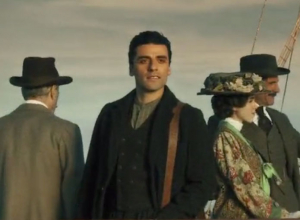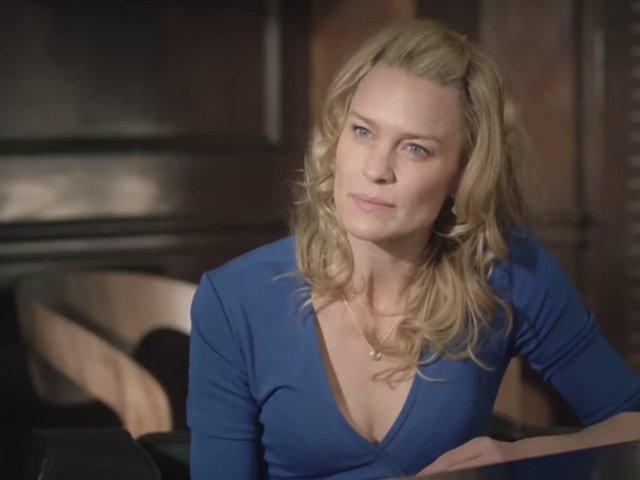Fiercely original and wildly ambitious, this provocative drama is often thrilling simply because it's like nothing ever put on-screen. This means that it can be somewhat overwhelming at times, as the film cycles through its dense plot, which seems to meander and stumble here and there. From inventive filmmaker Ari Folman (who made the award-winning animated doc Waltz With Bashir), this is a challenging look at identity in an increasingly digital society.

The story begins in the present day, as actress Robin Wright (playing a variation on herself) is living out of the limelight with her two kids (Kodi Smit-McPhee and Sami Gayle). Then her agent Al (Harvey Keitel) brings her a very strange job offer: a film studio boss (Danny Huston) wants to buy Robin's image to digitise and use in movies, while the real Robin is free to live her life away from Hollywood. Since her son's medical condition needs her attention, she signs a 20-year contract and lets the studio create an avatar that will carry on her career. Two decades later, advances in technology have made this kind of virtual existence available to the general public, so as a pioneer Robin is invited to the Futurists Congress, which is held in an animated alternate reality.
Essentially the story is told in two halves. The first part of the film is a smart and funny razor-sharp satire of Hollywood image-making, as the studio wants the young Robin Wright of The Princess Bride and Forrest Gump rather than the older, more serious actress. And from her perspective, she still wants to control her image as much as possible ("no Nazi or sci-fi movies!"). Then events leap forward to the animated Congress, which is a deluge of colourful characters from vintage cartoons and videogames. In this realm, people can be whatever they want to be. But the truth is that they are living drugged-up Matrix-style lives in the real world while their avatars cavort as if in a dreamland.
Continue reading: The Congress Review









![Luke De-Sciscio talks to us about having the courage to be yourself, forgiving that which is outside of one's control and following whims [EXCLUSIVE] Luke De-Sciscio talks to us about having the courage to be yourself, forgiving that which is outside of one's control and following whims [EXCLUSIVE]](https://images.contactmusic.com/images/home/homepage/luke-de-sciscio-abof-a.jpg)


